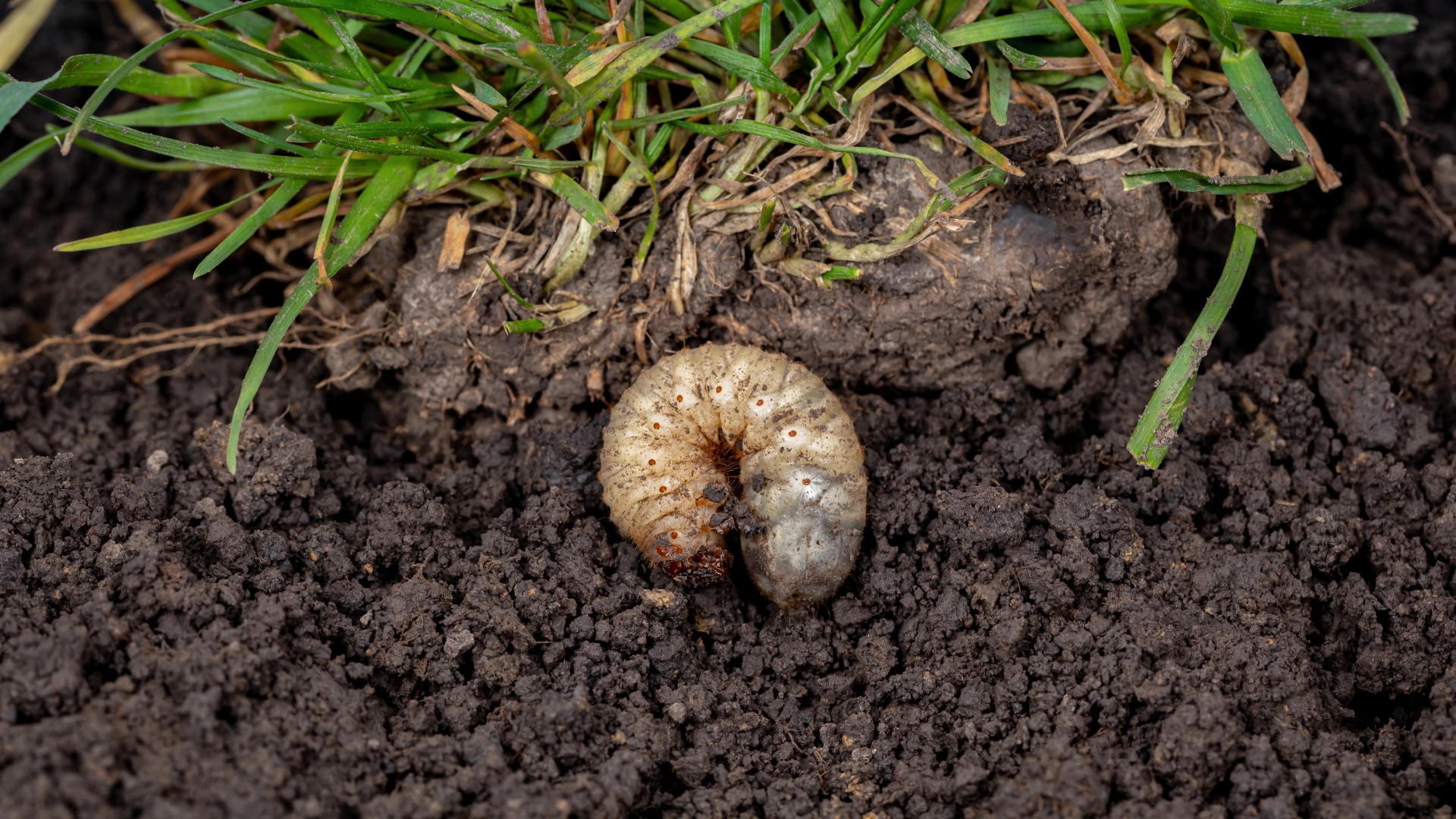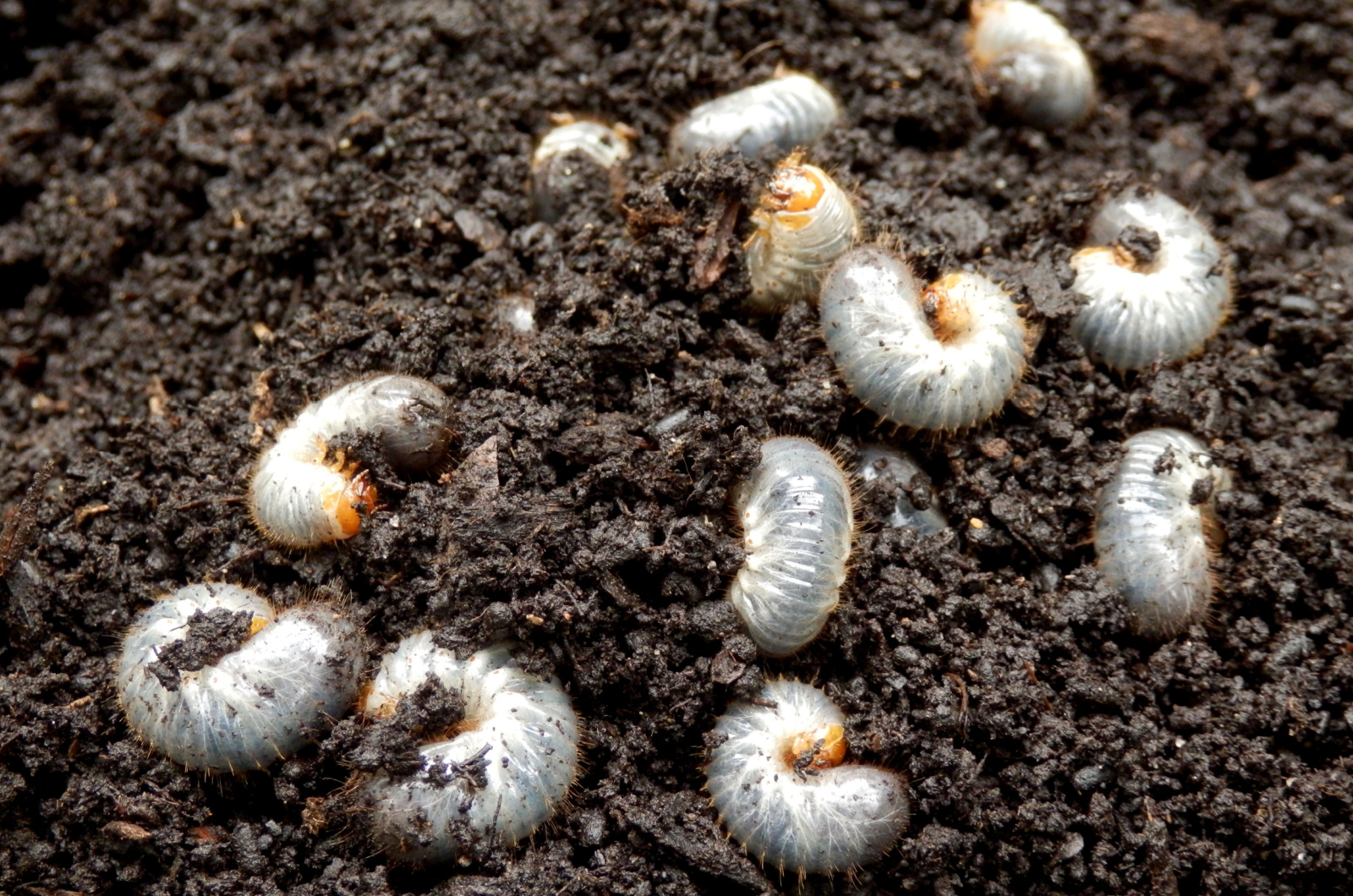Are you struggling with grubs in your lawn or garden? If so, then you’ve come to the right place!
Grubs are well-known pests that can create havoc in your garden, leaving you with bare patches on the lawn and dying plants in the garden.
While there are many chemical treatments available on the market today, we gardeners often prefer to solve these issues organically as chemicals can disrupt our plants as well.
In this article, we are going to show you how to get rid of grubs organically. Let’s discover natural methods for a healthy and thriving green space!
What Are Grubs?
Grubs are the larvae or immature stages of various beetles, more specifically Japanese beetles, June beetles, and European chafers.
These cream-colored larvae are typically found in the soil, where they feed on the roots of grass, plants, and other organic matter.
As grubs grow, they can cause damage to lawns and gardens by consuming roots, leading to patches of brown and unhealthy turf.
These commonly feed in the fall as they want to store energy for overwintering.
Grubs are a common pest in many regions and can attract animals like birds, skunks, and raccoons that feed on them, causing additional disruption in lawns and gardens.
Related: 7 Signs Of Grubs In Lawn With Helpful Tips To Remove Them
Treat Grubs Organically With Beneficial Nematodes
Instead of using chemicals to get rid of pests in your lawn or garden, you should try organic methods first.
Beneficial nematodes have shown to be the best organic treatment for eliminating nematodes. What they do is basically invade the grub and destroy them from inside out!
They can take up to one week to work, but in the meantime, you can handpick some of the grubs if you spot any.
It is important to treat grubs before adding any new plants into your garden, especially seedlings that are super vulnerable due to their tender roots.
You can continue to apply the beneficial nematodes throughout the season as needed.
Also read: Keep Your Garden Safe By Getting Rid Of These 7 Pesky Pests


